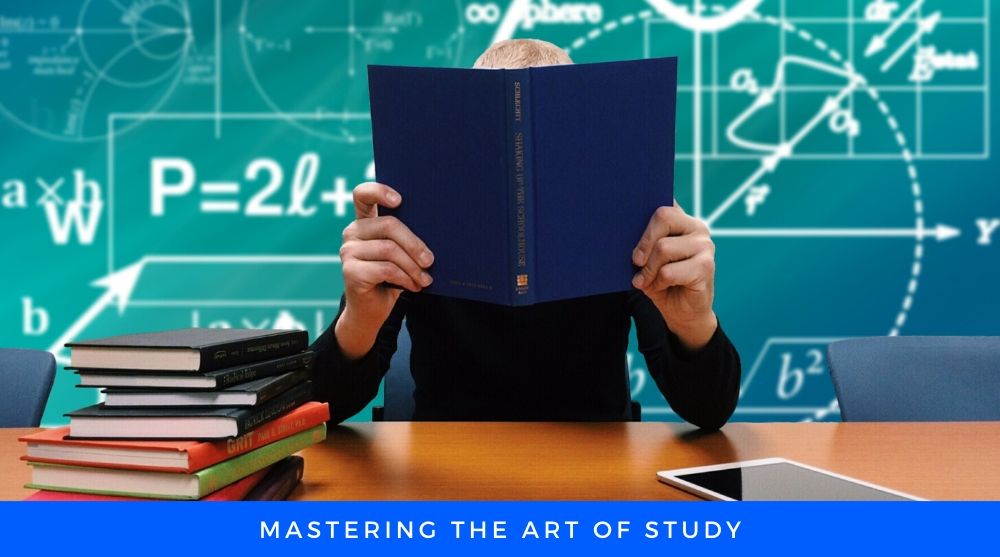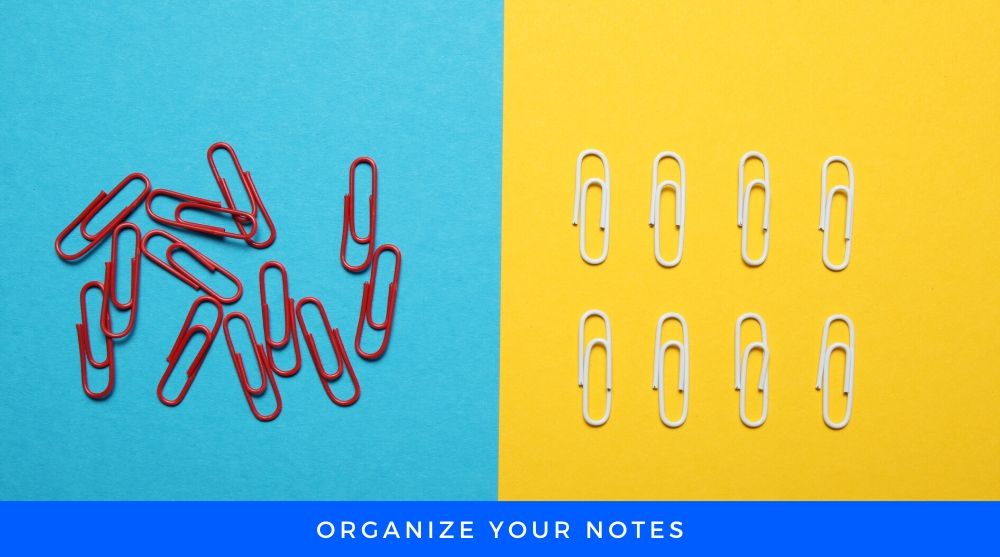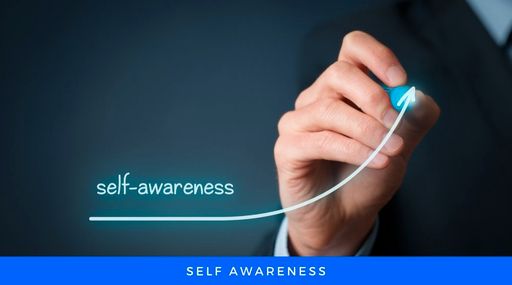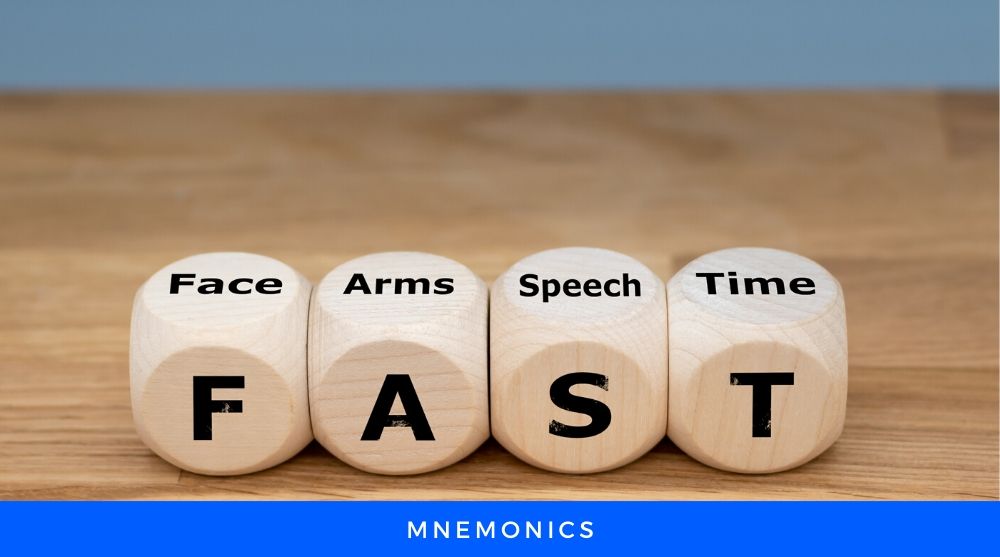Finding the best way to study can make all the difference to school and college performances. Effective study techniques will help you keep your attention to your studies and also get you good grades. All effective studying requires is proper determination and the right attitude. But it requires a tremendous amount of time and patience. Mastering the right strategies can help you overcome the incurable panic churning in your stomach due to the next big test.

Discover how to improve your study skills so that you can realize what is right and what is wrong for you. With the best study techniques you decide for yourself, you can shift your entire outlook towards studying from a preposterous game played by Aristotle to a fun game. Here are a few of the techniques that can help you rule over your studies.

Concentrate in class
Make sure you concentrate in class and avoid distractions. You not only need well explained notes but also need to comprehend what the teacher is saying, not just hear. Try to write notes in your own words and not just write down what your teacher is saying. This points out the difference between hearing and listening. Active listening shows that you have completely understood the lecture. It’s important to have clear and complete notes written down because they are going to be the ones which will be reviewed by you before a test.
Know your distractions and take measures. Almost every student has recommended to avoid sitting with friends as they are the most popular form of distractions. Both your attention in class and your notes get hampered. Notes are one of the foremost necessities for you. Try not missing any classes. If you do, cover for it.

Organize your notes
Organizing all the information you have from your class lectures and the library can help you remember better. Make studying less overwhelming by organizing and simplifying notes. Underline or highlight key words or words that you feel are immensely important. If you keep on marking everything just to help you learn, you might just turn your note into something that belongs to the national treasure. It doesn’t work that way. Skim through your note or your book first and find out the objectives of the book. Then mark down what you feel is significant and relevant. Creating visual aids like flow charts, story webs, diagrams, mind maps, or outlines can be helpful when revising. Challenge yourself to write down everything you already know about a topic so that you can figure out where you are missing out.
Condense your revision notes into one-page diagrams and key notes to read the day before the exam. Making a brief format will help you get enough time to skim through the day before the exam. These techniques provide efficiency in recalling during the exam.

Review notes immediately
After class, review and expand on your notes from your lecture and your books. While there are students who review their notes right after going home, there are also students who wait to study their notes till the day before the exam.
As the time elapses from the moment when the teacher enters the class to when they leave, your brain starts to decelerate. The most effective way to absorb those hand-written creations is to examine them right after the teacher leaves the class and thoroughly again later with the help of books at home. A five-minute investment per class can save you from letting a tremendous amount of knowledge fall through the clutches of your hand.
Invest in a homework planner. Input all your tasks immediately into them and you will never forget any homework, project, test or assignment ever again. Pitching in your tasks of the day and going through your notes after class and after coming home helps move lectures learned from the short-term memory into the long-term memory.

Ask questions
Teachers are the best listeners. If you have a problem, feel free to consult them and ask any questions regarding the syllabus. They, in fact, appreciate it when you approach them and ask questions. When you ask them a question, they feel well-received and understand that you are interested in what they are teaching. They, on the one hand, are the best people to answer your questions and on the other hand, are also eager to teach you more about what they know.
Raise your hand and ask questions for clarification or extra help. If you don’t feel comfortable asking in front of everyone, ask through a friend or go to them after class. They will be happy to help. Have any questions regarding the exam or your own notes? Expose them to your teacher.

Create a study area
Look for a distraction free zone. That means, away from people, away from the TV, your phone and yes, away from the bed. All of these distractions may keep calling to you like beautiful mermaids, but only after you have crawled your way towards them, you realize that they may be lucrative but they were yearning to keep your soul in them for the next three hours. Maybe a day. If you have a bed in the room that you study, read in a place where your back is facing the bed, better if you have your head facing the wall. Are you are one of the studious people who study on their beds? Then you are one of the millions who can relate to falling asleep as soon as you start reading a book. Not any other time. Just when you have a book or a note in your hand.
The best place to study is in a quiet, comfortable, well-lit, particularly in low-traffic area. Make sure you have big clear desk to study and write on. Everyone’s needs are different, so take the time to get it right.

Study in short bursts
Imagine you have started studying as you have buckled yourself in for the next six hours. You’ve spent six hours on your table. Congratulations! If you can remember only the first five percent of what you’ve learned, try not to be surprised. While you may feel that you should be studying for as many hours as possible to finish your syllabus, this can actually be counterproductive. It would bring negative results and quell your brain. A runner training for a marathon wouldn’t try and run 24 hours a day. He uses his time intelligently and practices daily so that he does not feel worn out and get bored of running. Studying for long periods with no breaks could instead bring mediocre results and resentment.
Psychology quote, things that we reinforce of, we do more of, things we are punished to do, we do less of.

Reward yourself
You always take a break. You are going to be using hours of your free time for studying. You don’t necessarily need to take a break of 30 minutes for studying for half an hour. The moment your active brain starts to slide, you can take a break of as less as even 5 minutes. And you need to spend these five minutes like the best 5 minutes of your life. You need to do something fun. Don’t just get yourself consumed in your phone. Do something that has the probability of genuinely making you happy. Talk to someone, take a walk in the sunshine, grab a cola, listen to music or just relax. This break is like a charger to your brain. It gives you a boost to provide you with the required kick you need. You’ll be amazed to find that your efficiency, your workflow, is the same as before. One hundred percent.

The big reward
Now that your study is over, what do you do? This is the time to reward yourself. This time you need to reward yourself with the big treat. If you’re into candle-lit baths, that should do the trick. If baths are not your thing, a scrumptious meal can be a major treat. Then again, you can just spend your time with friends, a bit of drinks, games and partayy! Partying will not retrograde your brain unless you are planning on getting drunk. Or high.
You keep up with this routine that ironically most people undermine and you can in point of fact, increase your concentration limit. If you can keep your brain locked in this endeavour for thirty minutes, with a regular routine, your brain enforcement limit can increase to forty minutes, fifty minutes, who knows how long your brain can weigh in! This is called brain training. And it’s highly necessary too for those pursuing higher studies. You’re gonna need a hefty amount of studying if you want to get straight A’s. Reward yourself big but only after you’ve completed your study goals for the day.

Remind yourself what’s important
You should be aware of your main goal. Completing your studies. Keep yourself up with your targets of the day. If you’re taking a break, try not to prolong your interval to over twenty minutes. Extending a study break means bringing your own doom. If you can’t help it, you can try the rubber band technique. Just wear the rubber band you use for holding paper sheafs, like a wrist-band. If you see yourself drifting away from your goal, just pull the band and let it go. Snap! The further you’re drifting, the harder you hit yourself. Relax. It’s not deadly. But it hurts.
You may have heard of the Pavlovian conditioning technique. A study gives food to a dog every time they ring a bell. They continue to ring the bell and give food for one week. After a while, the dog was found to drool when a bell was rung even when there was no food. Now you may think how this dog technique is related to you. The bell could be any strategy to you and the food your books. Your bell can be a lamp for example. You can turn on a lamp that you will use specifically for studying. Every time you turn on the lamp, with a little practice, your brain can automatically give full concentration, correlating with your reflexes. Even when you see someone turning on a lamp, you will be subconsciously compelled to go back to your study room and start flipping the pages of your books.

Memorization and Understanding
You will often see students around you using the ‘rote memorization’ technique. They read lines over and over again till they’ve memorized them by heart. While this may work for students studying in elementary or high school, college means you need better techniques for advanced subjects. If you are great in memorizing, then kudos to you though!
Advanced studying. That means not the memorization you are used to. There are two methods of studying for basically everything. One is knowing the facts and another is understanding the concepts. Take for example, photosynthesis. Plants give off Oxygen by photosynthesis. That’s a fact. You learn it. But the concept of photosynthesis that, carbon dioxide reacts with water to produce sugar and oxygen, has to be understood. You have to grasp the concept if you want to keep it in your head. If you keep on reading the lines continuously without knowing what it is supposed to mean, you may remember what you’ve learned till tomorrow. But a week from now, you’re asked the same question and you’re describing how sugar from sweet plants reacts with water to produce oxygen. But, if you understand the concept, take examples, describe in your own words how the process actually works, you will have it implanted in your mind for the rest of your life. Twenty years later, the concept will be crystal clear to you just as the first day you read it. Read. Comprehend every line. Ask questions. Describe the entire process to yourself in your own words. Go through examples. If you need help, get help. The internet is expanded with tutorials. If you don’t find what you’re looking for, ask someone.

Study with a group
Organize study groups with friends and classmates. Working with classmates provides you an interactive environment to keep your concentration intact. By this time, you know your classmates pretty well. You can hold study sessions from time to time to clear yourself from all confusions in your notes. They may have questions as well as essential info that you have the answers to and can share with them and vice versa. There was an approach that students used which can be claimed as one of the best ways of using modern technology to the advantage of studying collaboratively. Some students of a university typed all their notes for every class in a doc file and added their explanations. They pasted and merged their notes in a group doc file where each topic had an explained comment. Then everyone in the class could easily familiarize themselves with topics they don’t understand without the needless running around for help. You can work well with your study partners in this way and go through concepts together.
Jammed up with other students working for the common aim gives you a chance to test your knowledge with others, question each other, and help boost each other’s confidence.

Effective learning
Find a healthy balance between studying and relaxing your mind. Take control of your habits and eliminate everything that is keeping your from finding this balance. If you feel that you are on social media too much, keep your phone hidden. If you can’t get enough sleep because of work, search for work that has lesser hours. Your Sleep matters. Your education matters. Education relies on effective learning.
Study effectively and make use of your time. Read a topic, understand it thoroughly. Go to the next topic. Then think about the first topic. Think about what you’ve read. Describe a clear idea to yourself about what was going on in the topic without looking at the book. If you have succeeded in remembering the topic without any doubts, then hands down, you have attempted effective studying.
Practice old exam papers within limited time and know your gaps. It will also help you in habituating yourself with the exam format.
Embrace new technologies, whether it’s through online tools, social media, blogs, videos or mobile apps. Don’t let technology benefit from you. Instead, be smart enough to use it to your advantage.
Survey your books. Open your book and flip through the pages of what you’re going to be reading. As you flip through, look at the terms and pictures of each page and ask yourself questions. Raising questions can get you intrigued about the various topics you discover in the book.

Mnemonics
You may have heard of mnemonics before. If you haven’t, you may be well aware of an example. You forgot which month has thirty and thirty-one days. You take a look at your knuckles and count each knuckle of your finger as thirty-one and the ridges in between as thirty. The knuck mnemonic.
Mnemonics can of various types and they are quite helpful in learning facts and concepts. You can learn formulas you have been trying to learn for months with the right help from simply rhymed collection for words. There is a math formula that most people take days to remember. But if you have tried mnemonics before, you will have no problem in remembering the entire formula in this very moment.
A negative boy was undecided whether or not he should go to a radical party but his 2 friends who were boys went and there they met 4 amazing chicks and stayed up until 2am.

These techniques present in internet sometimes can’t be found regarding particular subjects. You can make them however you like it. There are six characteristics of winter in the tropical monsoon climate. If you don’t know how you are going to learn them, make a mnemonic of your own. There are six characteristics and six letters in winter. Take the first letter from each of the keywords and turn them into a wild statement. KTMAWI. Kelly taught me acrobatics in winter. Easy as pie.
Use pictures, diagrams, lyrics from music, stories, anything that can help you remember. Turn each lesson into a story. Weaving lectures into stories can help you to understand and memorize concepts and key ideas. The crazier the story, the more likely you remember it.

Teach
Keep your brain active. The best form of learning is teaching. If you are tutoring, teach someone anything you like just to keep your brain healthy. It doesn’t necessarily need to be something from your test. If you don’t have anybody to tutor, you can do one of two things.
Explain your answers to anyone you have around you. Start teaching your parents and annoying little brothers and sisters. Take advantage of their presence. Elaborate your answers to them in your own words. In this way, you will be able to have a clear head and you can also point out your mistakes.
The other way is to teach an empty chair. This may seem strange and many people may consider you as a weirdo but it’s not if your purpose is education. If your roommate feels uncomfortable, it’s preferable to tell them your little study technique beforehand so that you can teach or read out loud as long as you want without having to deal with perverse situations.

The test review
You most likely have a test coming up or else you wouldn’t have searched for tips for effective studying. So here’s a tip to do well in any test. Break the cycle of cramming for tests. Tests are usually taken as a review of what you have understood from the chapter you have been reading for so many days. And you have to study exactly according to how you are taught. Students normally wait until a few days before their test to prepare themselves. This gives them less time to study and they can only recognise what they’ve been reading instead of reading. Your tip is to set up a time-table and start reading quite a while before the test so that you have the day before the test to revise and recollect your notes instead of dead-end cramming. And this tip is a good one.
You may want to give some exams more study time than others, so find a balance that you feel comfortable with. Creating an effective study plan will put your mind at ease and save you from half-learned notes and over-night preparation.

The day of the exam
Make sure you have a sound sleep the day before the exam. That means 7 hours of happy thoughts, good dreams and sleep. Studying instead of sleeping means trying to rummage an empty-fueled tank. It is of no use as the brain has nothing left to give.

Snack on brain food and stay hydrated. Don’t go to the exam hall in an empty stomach. Keep your body and brain well-fuelled by choosing nutritious iron-rich foods such as eggs, nuts, fish, nuts, seeds etc. A well-balanced meal will provide you energy throughout the day. Dark chocolate has shown to increase cognitive memory. Plus avoid sugar at all costs as it crashes your brain cells.

You need to keep the cells in your brain circulating. Getting a good shower can do just that. Oxygen found from drinking water has shown to increase circulation of blood among the brain cells and that is when your brain is at its best.

Take preparation well in advance of the exam, and that also implies to your writing board, clothes and stationery. Don’t wait until the day before to realize that you don’t know the route or journey time or that you lost your entrance form. Start taking preparations at least a week before. If possible, take a test run of the trip and write down directions. This can help reduce any fear you have or you can at least know when to leave for your exam. To save yourself from the hassle of remembering what to and what not to do, you can plan together with friends. If you are not well aware of the venue of the exam, you can get together and go with friends, if they are punctual.
Everybody is different. There is no one-size-fits-all approach when it comes to finding out effective ways to study. Find out which techniques best suit you. It may take a while to tailor the methods according to your abilities and you may not perform great at first, but it may work out with a little bit of effort. So figure out the best in you. And remember. If there is somebody who can do it, it’s you.

More Posts
8 Steps to Develop and Increase Employee Potential
8 Steps to Develop and Increase Employee Potential
21 Productivity Quotes from Steve Jobs
Steve Jobs was born on February 24, 1955, in San Francisco. He co-founded Apple Inc., changing technology and design. His sayings inspire us with deep productivity insights. Jobs taught us to follow our...
10 Best Digital Hourly Planners for Smooth Routine
Ever felt overwhelmed by your daily tasks? Welcome to the world of digital hourly planners. These tools don't just help you manage your to-do list; they're game changers in achieving the perfect balance...
10 Time Management Tips for Leaders
In today's fast business world, United Franchise Group (UFG) leads over 1,600 sites in 60 countries. Being a leader means using time well to work better and stay successful. Good time skills help...